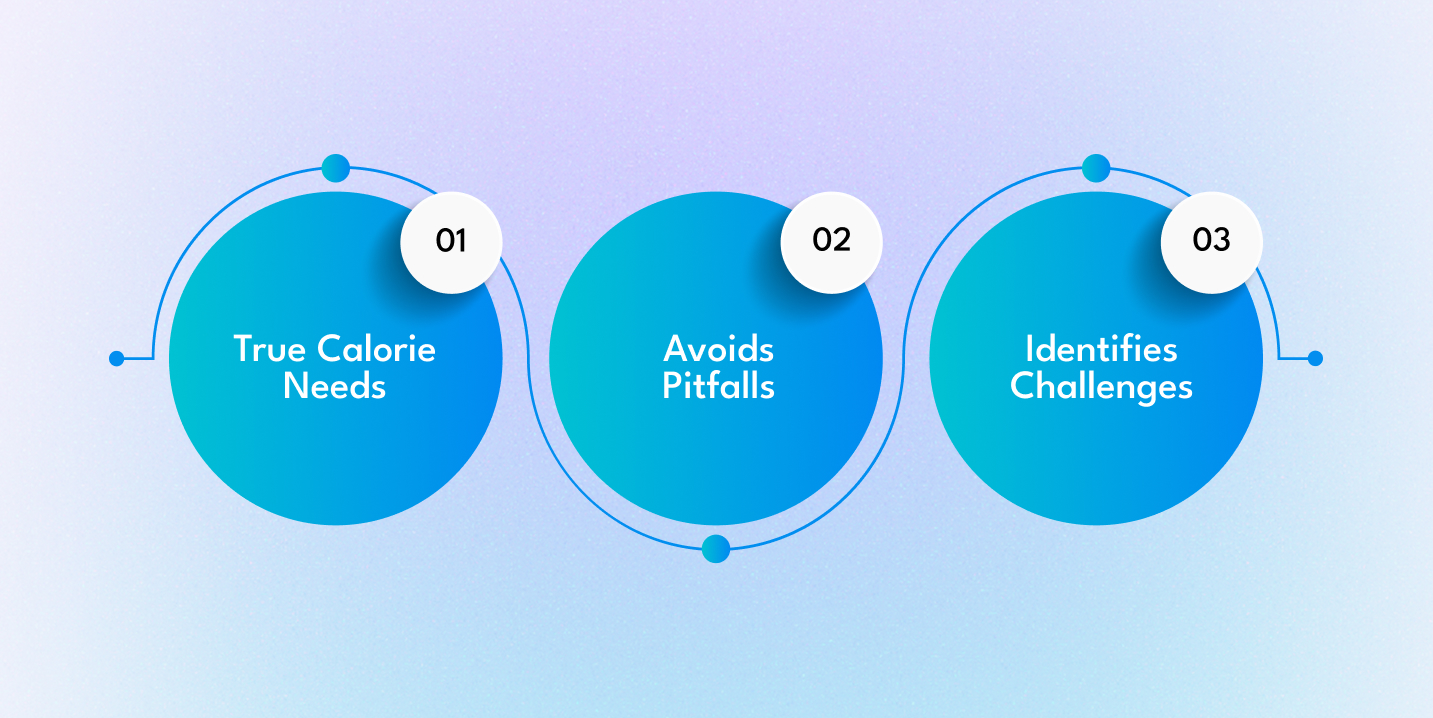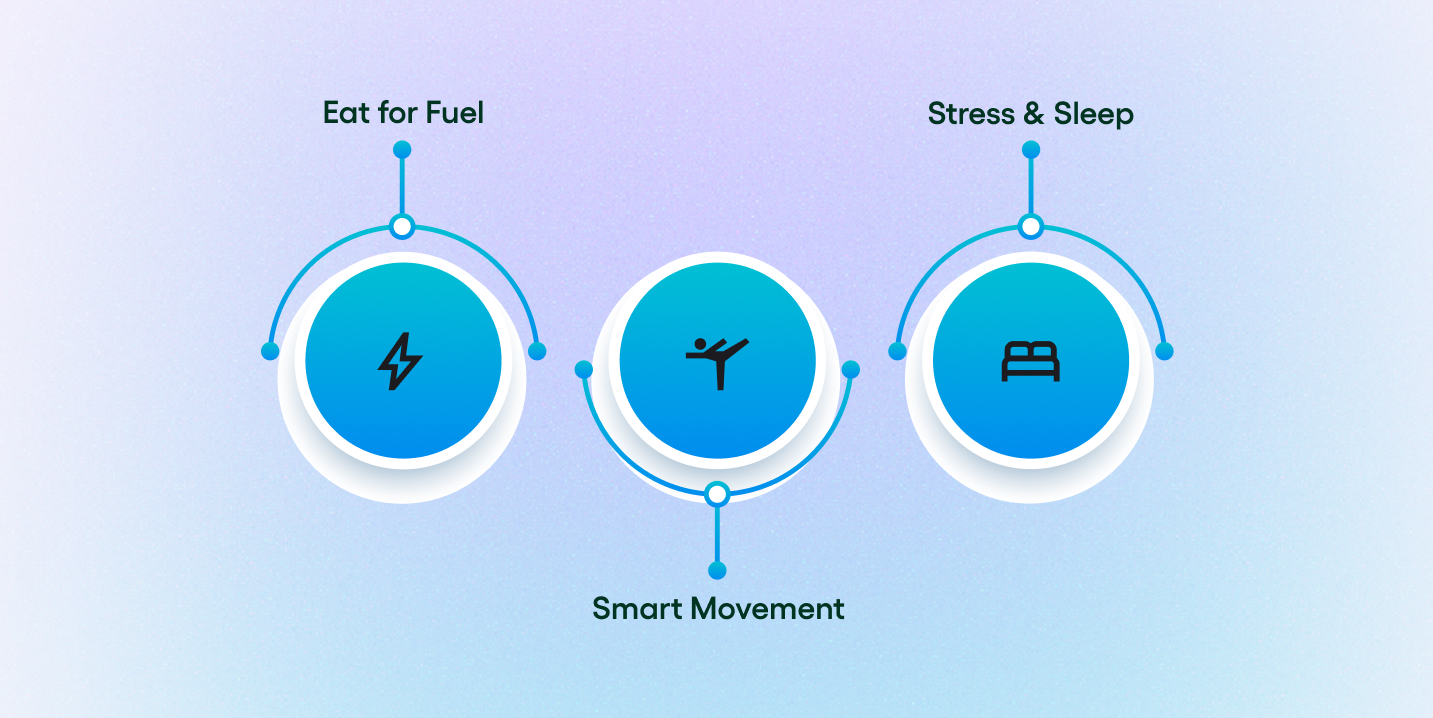When it comes to lasting weight loss, the secret isn’t just willpower- it’s understanding your biology. If you’ve ever counted calories or pushed through grueling workouts with little change on the scale, you’re not alone. The missing link for many? Knowing how your body burns energy. A metabolism test can reveal what’s happening behind the scenes, helping you tailor your diet and exercise for sustainable, effective results.
This guide is your roadmap to unlocking your metabolism’s potential and personalizing your weight loss journey.
Key takeaways
-
Metabolism tests help tailor diet and exercise for more effective weight loss by revealing your body's true calorie needs
-
Common tests: BMR, RMR, and indirect calorimetry measure calorie needs at rest or during minimal activity
-
Benefits: Tests prevent starvation mode, avoid metabolic slowdown, and uncover hidden challenges like hypothyroidism and insulin resistance
-
Personalized approach: Craft your diet with realistic calorie targets, balance macros, and choose the right exercises to boost metabolism
-
Lifestyle changes: Manage stress, prioritize sleep, and mix up exercise routines for better metabolic health and sustainable weight loss
Metabolism: The basics
Metabolism refers to all the chemical processes in your body that convert the food you eat into energy. Your metabolic rate is how quickly your body burns calories for energy, which plays a big role in how easy or difficult it is for you to lose weight.
Why metabolism fluctuates
Sudden drops in weight loss progress, known as plateaus, are common. As you lose weight, your metabolic rate may decrease, making further weight loss harder. Knowing your new baseline allows you to adjust your calories and activity, breaking through plateaus with confidence.
Why metabolism matters for weight loss
Your metabolism is the engine that keeps your body running. It dictates how many calories you burn just by being alive. A fast, efficient engine burns more fuel, making it easier to shed excess pounds; a sluggish one can leave you frustrated despite your efforts.
What is a metabolism test for weight loss?
Think of a metabolism test as a tune-up for your weight loss plan. It shows how many calories you burn at rest (your baseline) and, in some cases, through activity. With this knowledge, you can stop guessing and start making real progress.
Common metabolism tests:
|
Test name |
What It Measures |
Where Available |
|---|---|---|
|
Basal Metabolic Rate (BMR) |
Calories needed for your body’s basic functions at complete rest |
Clinics, labs |
|
Resting Metabolic Rate (RMR) |
Calories burned at rest (including minimal activity) |
Wellness centers |
|
Indirect Calorimetry |
Real-time oxygen use and CO₂ output for precise calorie estimation |
Specialized labs |
How metabolism tests guide your weight loss

Let's explore how these tests provide invaluable insights for crafting a personalized and effective plan.
-
Reveals your true calorie needs
No more one-size-fits-all diets. By knowing your metabolic rate, you can create a calorie plan that's just right for you, supporting fat loss while maintaining muscle -
Avoids common pitfalls
Drastic calorie cuts can tank your metabolism and cause muscle loss. With accurate data, you eat enough to fuel your body, yet still lose weight -
Spotlights hidden challenges
Conditions like hypothyroidism or insulin resistance can slow your metabolism and stall weight loss. Testing brings these roadblocks into the open so you can address them directly
Tailoring diet and exercise to your metabolic profile
No two people burn energy the same way. Understanding your numbers lets you make smarter choices for both food and fitness.
Craft a diet that works with your body
Crafting a diet that works with your body means aligning your intake with your unique metabolic needs. Here’s how to build a sustainable and effective plan:
-
Set a realistic calorie target: Align intake with your tested needs to stay in a gentle calorie deficit- enough to lose weight without feeling deprived or lethargic
-
Balance macros: Prioritize protein for muscle maintenance and satiety, healthy fats for hormone support, and complex carbohydrates for energy
-
Avoid starvation mode: Eating too little can make your body conserve energy. Stay above your minimum calorie needs to keep your metabolism humming
Exercise that boosts (not tanks) metabolism
Exercise that boosts metabolism involves engaging in activities that elevate your body's calorie burn and improve overall efficiency. Check out the list of some exercises that can help maintain an active metabolism:
-
Strength training: Building muscle ups your resting metabolic rate, more muscle means more calories burned 24/7
-
HIIT (High-intensity interval training): Short, intense workouts spike your calorie burn for hours after you're done
-
Aerobic activity: Brisk walking, cycling, or swimming keeps your engine running efficiently and improves heart health
For a detailed plan to help you lose weight and build lean muscle, check out our guide: Workout Schedule for Weight Loss and Lean Muscle. This resource offers expert tips and weekly routines to optimize your fitness journey.
Lifestyle shifts for a metabolism-friendly routine

Boosting metabolism and shedding weight for good isn’t just about food and exercise. The way you live, from stress to sleep, plays a big role
Eat for fuel, not just fullness
Eating for fuel means choosing foods that support your metabolism and keep you energized throughout the day. Let's look into some foods that can help boost your metabolism while providing lasting nourishment:
-
Protein-rich foods (chicken, eggs, lentils, nuts): Increase the thermic effect of food, burning more calories during digestion
-
Green tea: Contains catechins that may modestly increase energy expenditure
-
Spicy foods: Ingredients like capsaicin (found in chili peppers) can give your metabolism a fleeting push
-
Fiber: Keeps you satisfied and your blood sugar stable, curbing cravings and promoting gut health
Move smart: mix up your routine
Mixing up your workout routine not only keeps things interesting but also helps prevent plateaus. When you include a variety of activities, you can maximize your calorie burn and improve overall fitness.
-
HIIT and strength training: Maximize post-workout calorie burn
-
Daily activity: Stay active between workouts with walking, stretching, or light movement
Stress and sleep
Managing stress and getting enough sleep are crucial for supporting a healthy metabolism. By prioritizing these aspects, you can optimize your weight loss efforts and improve overall well-being.
-
Manage stress: Chronic stress releases cortisol, which encourages fat storage, especially around your middle
-
Prioritize sleep: Less than 7 hours a night can disrupt hunger hormones, decrease energy, and slow metabolism. Aim for rest, not just sleep
Bringing it all together
Effective, sustainable weight loss isn’t about punishing yourself with restrictions- it’s about working with your body, not against it. By understanding and measuring your metabolism, you unlock a powerful new tool in your weight loss journey.
-
Test, don’t guess
-
Personalize your plan
-
Celebrate small wins- they compound over time
If you’re ready to reset your relationship with weight loss, consider starting with a metabolism test with The Good Bug. With new data in hand, you’ll be equipped to make choices that deliver real, lasting results- one healthy, informed habit at a time.
Discover our scientifically backed products and metabolism tests to tailor your diet and exercise plan for effective weight management. Shop now and take the first step toward sustainable weight loss!
FAQs
1. How accurate are metabolism tests for predicting weight loss success?
Metabolism tests provide useful estimates of your calorie needs, but they are one part of a bigger picture. Factors like hormone levels, genetics, and lifestyle also influence weight loss. While tests help tailor plans, patience and consistency remain key.
2. Can a metabolism test detect medical conditions affecting weight?
Yes, metabolism testing can sometimes highlight irregularities caused by conditions such as hypothyroidism or insulin resistance. However, a metabolism test alone cannot diagnose medical issues—you should consult a healthcare professional for a comprehensive evaluation.
3. How often should I get my metabolism tested for weight management?
Testing frequency varies by individual, but generally, once every 6-12 months is sufficient to track metabolic changes, especially if you experience weight plateaus or changes in lifestyle.
4. Is indirect calorimetry better than BMR or RMR tests?
Indirect calorimetry offers more precise, real-time data by measuring your oxygen consumption and CO₂ output, but it requires specialized equipment. BMR and RMR tests are more accessible and still provide valuable baseline information for most people.
5. Can metabolism tests help people with slow metabolism lose weight?
Absolutely. Knowing your metabolic rate helps avoid overly restrictive diets that can backfire. It guides you to a balanced calorie intake and exercise routine that supports sustainable fat loss without harming your metabolism.
6. Do metabolism tests account for muscle mass differences?
Some tests consider lean body mass, which significantly impacts metabolism since muscle burns more calories at rest than fat. More advanced testing methods, or combining metabolism tests with body composition analysis, provide a clearer picture of overall health.


